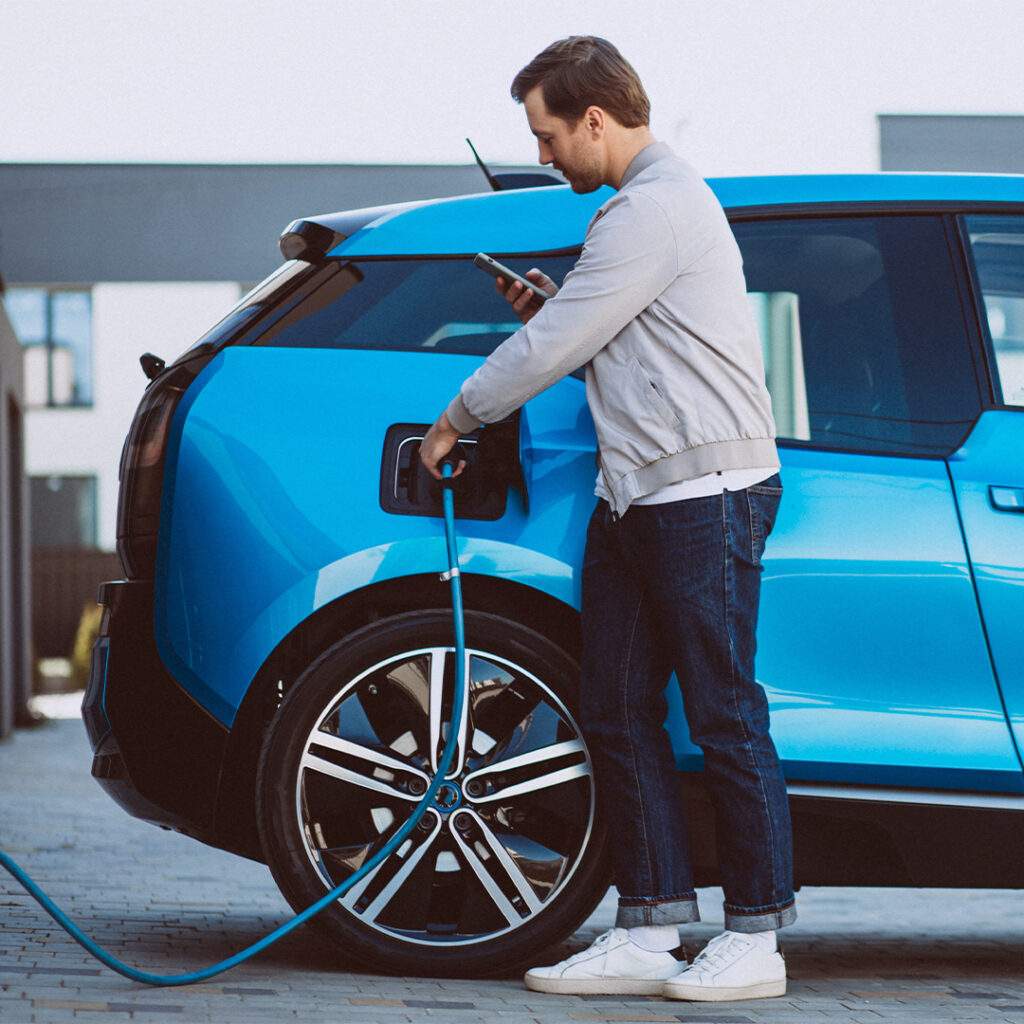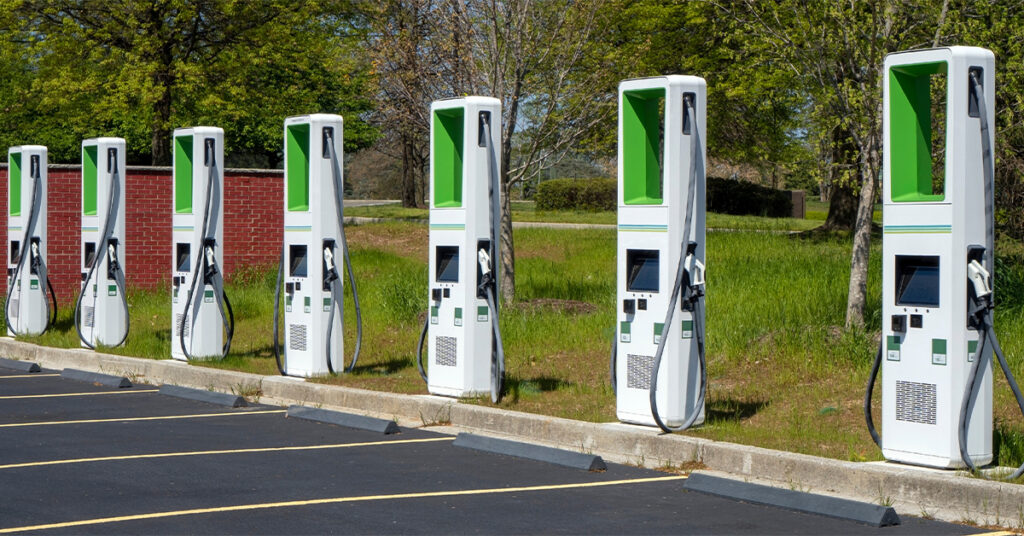Americans rely heavily on their vehicles for everything from work and school to errands and road trips. Over the last decade, however, we have seen a proliferation of the electric vehicle (EV) industry and an increased consumer demand for affordable, convenient, and environmentally conscious EV vehicles. With climate regulations aiming to have half of all new vehicles sold in the U.S. be zero-emissions by 2030, this demand will only increase as more Americans make the switch to EV.
While the desire for EVs is rapidly growing, the charging infrastructure to support the influx is not keeping pace. Accessibility and convenience of fast EV charging stations in public spaces are key to supporting the nationwide conversion to electric vehicles. As society transitions to greener business models, Tilson’s in-house EV experts are ready to plan and deploy reliable, scalable, and competitive EV charging networks.
EV charging stations currently come in three levels: Level 1, Level 2, and Level 3. As the level increases, so does the energy output, ultimately decreasing charging time. Installation costs, location, and intended use dictate which station is best for a given situation.
Using a standard 120-volt AC outlet, Level 1, or L1, is by far the most cost-effective but also the most time-consuming method of charging. Users can expect to get a little over 3 miles of range for each hour of charging, with a full charge taking roughly 24 hours. For these reasons, L1 is best reserved for homes and garages where a vehicle will be parked overnight or for longer periods of time.

While not the fastest charging option available, Level 2 is still in high demand in residential locations, office buildings, shopping centers, and other locations where drivers may not be looking to immediately get back on the road. With an L2 charging station, users can expect a full charge in 4-8 hours, with each hour granting roughly 20-30 miles of range. This charging solution requires less power and is often less expensive to install, making them a cost-effective option when looking to install a large volume of chargers in one location where multiple vehicles can charge simultaneously.
Far and above the fastest charging option, Level 3 stations are also referred to as “superchargers” for their ability to fully charge a battery in under an hour. L3 chargers are the preferred solution for rest stops, gas stations, and anywhere drivers are on the move and looking to get back on the road as soon as possible. With their increased power output, one minute of charging can provide up to 20 miles of range, reducing most charging stops to 30 minutes or less. L3 is also beneficial for companies with multiple electric vehicles, as the charging speed allows for the installation of fewer stations that still meets the demands of a large vehicle fleet. However, this increase in power output does require upgrades to the power supply, which makes it the most expensive option to build.
There is no one answer to which level of charging is best, as each serves a different function and should be decided based on targeted location, intended use, and the cost and feasibility of installation. This is why partnering with an expert in electric vehicle infrastructure pays off. Tilson’s EV Infrastructure division uses their in-depth network experience to lead EV site design and deployment to ensure your charging network is ready to meet both the current and the future demands of the EV sector.

From code compliant load analysis reviews to cost effective designs and installations, Tilson has an in-depth understanding of all stages of the EV project life cycle to take our clients from concept to reality. With a nationwide team of in-house experts, customers look to Tilson to provide:
In the months and years to come, creating an EV charging experience that can compete with what drivers are traditionally accustomed to will be a major hurdle to the widespread adoption of electric vehicles. The solution is the continued nationwide development of EV infrastructure and the implementation of technological advancements that further reduce charge time. Tilson is leading the charge in designing and building the future of America’s EV infrastructure.
Contact our EV Infrastructure team to discuss how you can design and install a future-proof EV charging network.